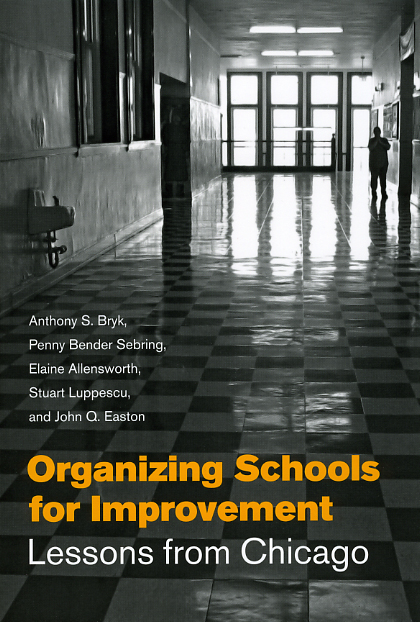Key ingredients for “baking up a good school”

In an article that appeared in yesterday’s Chicago Journal, reporter Megan Cottrell offers a nice summary of the results of a study conducted by researchers from the Consortium on Chicago School Research and recently published in Organizing Schools for Improvement: Lessons from Chicago. The study, conducted over a seven-year period, aimed to track the effects of the 1988 decentralization of the Chicago Public School system—a move that granted parents and communities significant resources and authority to reform schools. But, as Cottrell notes, the researchers found that the results of these reforms varied greatly from school to school, some dramatically improving the academic performance of their students, while others floundered.
In their book, Anthony S. Bryk, Penny Bender Sebring, Elaine Allensworth, Stuart Luppescu, and John Q. Easton have sifted through mountains of data to identify the key ingredients required to, as Cottrell’s article puts it, ‘bake up a good school.” Cotrell writes:
A good school, it turns out, is a lot like a cake. Put in sugar, eggs and oil, but forget the flour, and all you end up with is a sweet, sloppy mess. Without all the right ingredients, success will continually evade you.
It all starts with the chef. Without a good principal, says the research, most improvement efforts are wasted. But the principal has to have good material to work with—quality teachers—and an eye for academic and professional improvement. The teachers and leadership should be connected to the parents and to the wider community. All three groups must focus on making the school a safe, academically rigorous environment for the children they serve.
Remove any of these five “essential supports,” the authors’ research shows, and the likelihood that a school will improve plummets.
Continue reading the complete article on the Chicago Journal website and read an excerpt from the book.